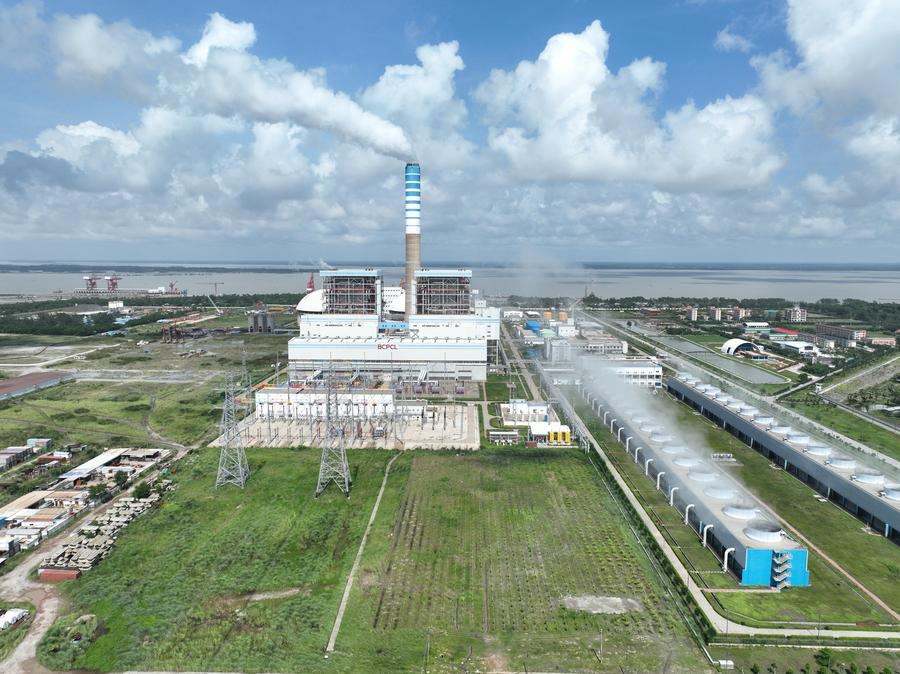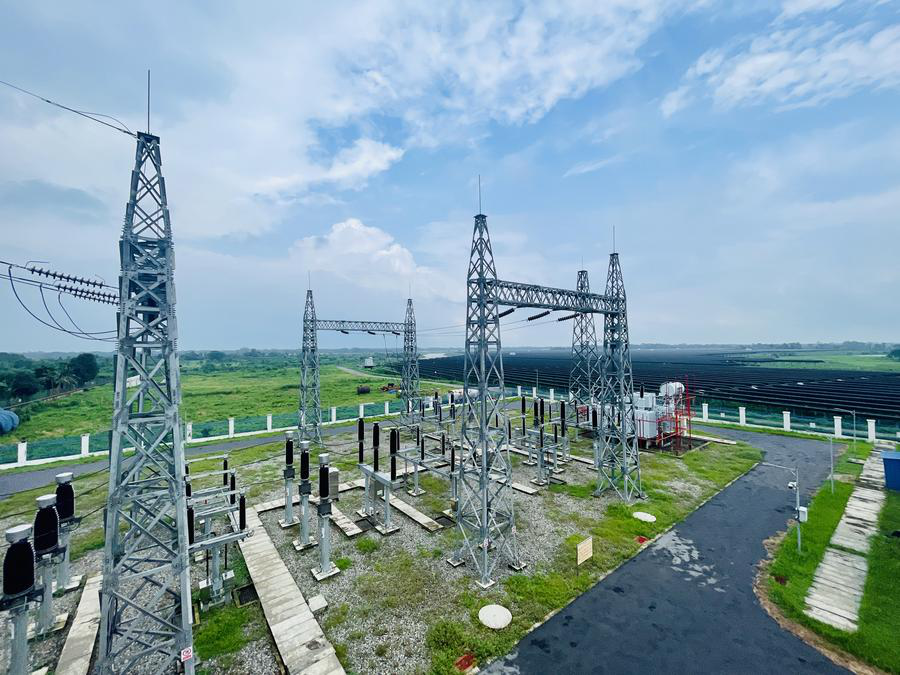
Prime Minister Sheikh Hasina of the People's Republic of Bangladesh has finished her three-day official visit to China on Wednesday from July 8 to 10.
During PM Hasina's visit, China and Bangladesh elevated their relations to a comprehensive strategic cooperative partnership. The two sides signed 21 cooperation documents, mostly Memoranda of Understanding (MoUs), aiming for stronger development and economic collaboration. Notably, the two Asian countries have completed the joint feasibility study on a China-Bangladesh free-trade agreement and agreed to begin negotiations on upgrading the bilateral investment agreement.
In an exclusive interview with GDToday, Dr. Abdur Razzaque Khan, associate professor at the Department of Mass Communication and Journalism of the University of Dhaka, Bangladesh, noted that PM Hasina's main focus of the visit was to strengthen the bilateral relationship between the two neighboring countries. He further proposed more people-to-people exchanges between China and Bangladesh, especially in light of the upcoming 50th anniversary of diplomatic relations between the two sides next year.

A view of Payra Power Plant in Patuakhali, Bangladesh, on July 7, 2024. | Xinhua Photo
PM Hasina's main focus of the visit is to cement the bilateral ties
According to Prof. Khan, PM Hasina's main focus of the visit is to strengthen the bilateral ties between China and Bangladesh. The signing of MoUs is a positive sign for the congenial relationship between the two sides.
"The prime minister wants to create a friendly relationship with China. China is one of our best friends. We have a policy of establishing relationships with our neighbors. In that sense, China and India are our neighbors. They are helping us and they are significant sources of our economic progress, especially China," Prof. Khan added.
China has remained Bangladesh's largest trading partner for the past 13 consecutive years. Bangladesh is China's second-largest trading partner in South Asia. According to the latest data released by China's General Administration of Customs, bilateral trade reached 10.3 billion US dollars in the first half of 2024.
Regarding the upcoming 50th anniversary of China and Bangladesh establishing diplomatic ties, Prof. Khan praised the goodwill that has lasted for half a century and believes it will be a golden chapter in the history of both countries.
"We can expect more mutual agreements and visits from China and Bangladesh in the future, especially on the occasion of our 50th anniversary of friendship. It will further strengthen and solidify our friendship and bond," he added.

Mymensingh photovoltaic power plant in Mymensingh, Bangladesh, on July 6, 2024. | Xinhua Photo
Bangladesh should keep in touch with China to achieve "Vision 2041"
As Bangladesh targets graduating from a least-developed country to a middle-income country by 2026, an upper-middle-income country by 2031, and a developed country by 2041, realizing the goal of "Vision 2041," Prof. Khan pointed out that Bangladesh should keep in touch with China and join BRICS Plus. He suggested that the government can sign more MoUs with China for people-to-people exchanges.
"The priority for the Bangladeshi government would be to keep in touch with China. We cannot advance by ignoring it, as the country is our strong friend and neighbor. We need China's help in all aspects of life," he noted.
As for Bangladesh's application to join BRICS last year, now the representative for Global South countries, Prof. Khan noted that if Bangladesh could join the group, that would be one of the greatest chapters in the country's national history. Bangladesh will get direct assistance, advice, and cooperation from all these countries, including China.
Having been a member of the New Development Bank (NDB) established by Brazil, Russia, India, China, and South Africa since September 2021, Bangladesh has NDB as a new platform to foster cooperation in infrastructure and sustainable development with BRICS and its new members.
As China and Bangladesh have designated 2025 as the China-Bangladesh People-to-People Exchange Year, Prof. Khan, who sets himself as an example, a PhD graduate from Hong Kong University, underscored the importance of people-to-people exchanges with GBA and China.
"If we can send our doctors, our journalists, our teachers, our young generations to the top universities in Hong Kong SAR and the Chinese mainland, that will help us a lot. When they come back, they will build a strong Bangladesh in all aspects of life," added Mr. Khan.
Reporter: Zhang Ruijun
Poster: Mia Lai
Editor: Zhao Yang, Steven Yuan, Monica Liu, James
















